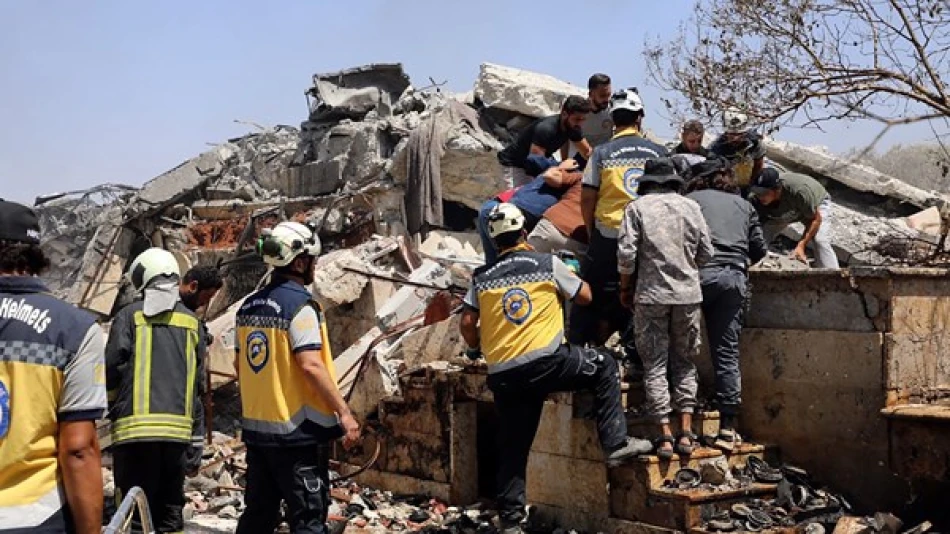
Deadly Blast Rocks Former Syrian War Depot, Casualties Reported
Deadly Explosion at Syria War Remnants Warehouse Exposes Ongoing Risks from Conflict Legacy
A catastrophic explosion at a war remnants storage facility on the outskirts of Idlib killed four people and injured five others on Thursday, highlighting the persistent dangers posed by unexploded ordnance and military debris across Syria's conflict zones. The blast required mobilization of over 25 firefighting teams, underscoring the scale of destruction in a region still grappling with the aftermath of more than a decade of civil war.
The Incident and Emergency Response
Residents in Idlib reported hearing multiple explosions from the western outskirts of the city, according to Syria's official news agency SANA, which cited the Health Ministry in confirming the casualties. The Ministry of Emergency and Disaster Management described the incident as a "major explosion" occurring inside a warehouse storing war remnants and unexploded ordnance.
Emergency and Disaster Management Minister Raed Al-Saleh confirmed on social media platform X that firefighting operations involved extensive resources, including Syrian Civil Defense teams, forest fire units, and firefighting battalions, supported by local communities and residents.
Idlib's Precarious Position in Syria's Conflict Landscape
The explosion occurred in Idlib province, one of Syria's most volatile regions and the last major opposition stronghold. This area has been subject to intense bombardment throughout the conflict, leaving behind vast quantities of unexploded ordnance, damaged military equipment, and hazardous materials that pose ongoing risks to civilian populations.
The Hidden War Legacy
Syria's conflict, which began in 2011, has left the country littered with explosive remnants of war. International organizations estimate that millions of pieces of unexploded ordnance contaminate Syrian territory, creating long-term hazards for returning refugees and reconstruction efforts. Storage facilities like the one that exploded often house collected munitions awaiting disposal, but inadequate safety protocols and aging materials create ticking time bombs.
Broader Implications for Post-Conflict Recovery
This incident reflects a challenge faced by many post-conflict societies, from Iraq and Afghanistan to Cambodia and Laos. However, Syria's situation is particularly complex due to the ongoing nature of the conflict and limited international access for professional demining operations in opposition-controlled areas like Idlib.
International Precedents and Solutions
Countries emerging from prolonged conflicts typically require decades and billions of dollars to clear explosive remnants. Cambodia, for example, continues clearance operations nearly 25 years after its civil war ended. In contrast, more recent interventions in Iraq and Afghanistan have demonstrated that immediate, well-funded demining programs can significantly reduce civilian casualties from unexploded ordnance.
The Economic and Humanitarian Cost
Beyond the immediate tragedy, such incidents highlight the massive economic burden that explosive remnants impose on Syria's eventual reconstruction. International donors and development organizations consistently identify unexploded ordnance as a primary obstacle to refugee return, agricultural revival, and infrastructure rebuilding.
The Idlib explosion serves as a stark reminder that Syria's humanitarian crisis extends far beyond active combat operations. Even as international attention shifts to other global conflicts, the legacy of Syria's war continues to claim civilian lives and impede recovery efforts. Without comprehensive clearance programs and international support, such tragic incidents are likely to remain a recurring feature of Syrian life for years to come.
Most Viewed News

 Layla Al Mansoori
Layla Al Mansoori






